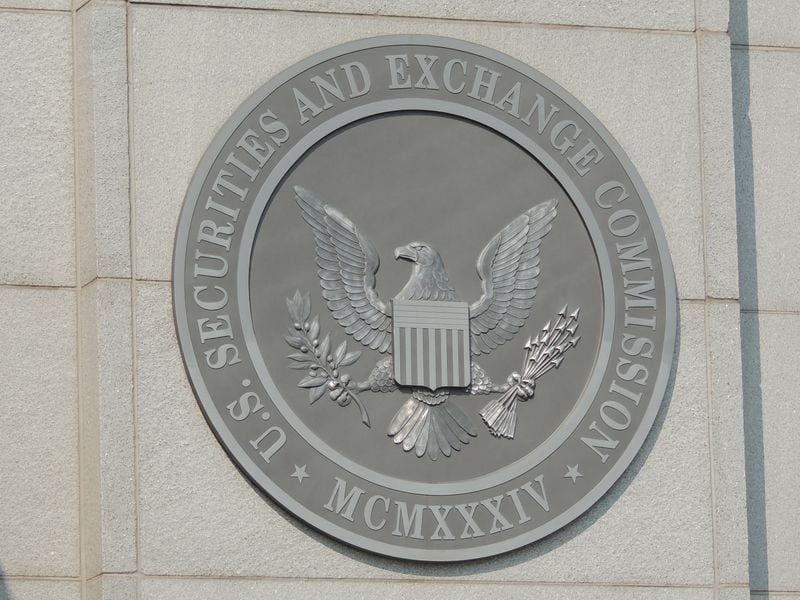Art Is Not a Security
Apparently, the Securities and Exchange Commission thinks the NFT market is a securities market. On Tuesday, August 27, NFT marketplace OpenSea received a Wells notice from the SEC. A Wells notice is a formal notification that the SEC staff intends to file a civil enforcement action against the recipient. While a Wells notice is a confidential communication, the SEC seems to think that some or all of the NFTs on OpenSea are unregistered securities and selling them violates the securities laws.
Brian Frye is a law professor at the University of Kentucky and conceptual artist who works with NFTs.
The SEC is wrong. No, it’s worse. The SEC is nuts. The NFT market is identical to the art market. Or rather, the NFT market is an art market. If the SEC can regulate the NFT market, then it can also regulate the art market. But the art market existed long before the SEC was created in 1934, and the SEC has never regulated the art market or even contemplated regulating the art market. It can’t and it shouldn’t. If Congress had wanted to give the SEC authority to regulate the art market, it would have said so. And, if it made sense for the SEC to regulate the art market, it would have done so a long time ago.
While this Wells notice is ridiculous, it’s also no surprise, at least to me. I predicted it five years ago, when I published a law review article styled as a work of conceptual art titled “SEC No-Action Letter Request” in 2019. The conceptual artwork consisted of filing a no-action letter request with the SEC, proposing to sell an editioned conceptual artwork titled “SEC No-Action Letter Request” and observing that it looked an awful lot like an unregistered security, according to the SEC’s definition. But the SEC ignored me, because it considered my observation “fanciful.”
:format(jpg)/cloudfront-us-east-1.images.arcpublishing.com/coindesk/J5T3JPK33FHEPAWSJZB4OKE7UQ.png)
And others like Bloomberg’s Matt Levine, agreed with them, claiming that my artwork wasn’t a security because no one would actually buy it. Okay, I guess. But, when I was a securities lawyer at Sullivan & Cromwell, I sure as hell wouldn’t have advised a client that they could avoid SEC regulation by offering to sell a security that no one would actually buy.
Along came the NFT market, and it turned out that people would buy my artwork after all. I refashioned “SEC No-Action Letter Request” as an NFT, and it sold out in less than an hour. I was delighted, not only by the money, but also by the proof of concept. I guess people would buy it after all. But the SEC still didn’t care and kept ignoring my no-action letter requests.
What gives? At first, I thought the SEC didn’t care about NFTs. But I was wrong. They didn’t want to sue me, they wanted to sue someone with an incentive to settle. That’s why they sued Impact Theory and Stoner Cats. Both were conventional NFT projects that had run their course. The defendants had no reason to fight, because they had nothing to gain.
That’s why we sued the SEC. I don’t care about money. I care about the principle. I create and write about NFTs because I find them interesting. And part of what I find interesting about NFTs is that they expose the incoherence of the SEC’s understanding of what it’s authorized to regulate.
Anyway, Jonathan Mann and I filed a declaratory judgment action against the SEC in federal court, asking it to explain how and why it’s authorized to regulate the sale of NFTs. After all, we’re just artists selling our artworks to people who like them. It shouldn’t matter that we’re selling our artworks on the blockchain, rather than a conventional catalogue raisonne.
And that’s the point. When artists sell artworks in the conventional art market, what they’re selling is objects that represent ownership of an entry on the artist’s catalog. From an economic perspective, a conventional artwork is just a dirty piece of cloth or lumpy rock that represents ownership of a fractional interest in an artist’s commercial goodwill. An NFT is the same thing, in digital form.
When the SEC regulates the NFT market, it’s really regulating the art market. Can it make a superficially coherent argument that NFTs are securities it can regulate? Sure. But I don’t think the courts are going to buy it.
Regardless, if the SEC wants to go after OpenSea, it can’t avoid our lawsuit. And I don’t think it has any answers to our questions that aren’t embarrassing.
Note: The views expressed in this column are those of the author and do not necessarily reflect those of CoinDesk, Inc. or its owners and affiliates.
Edited by Benjamin Schiller.
Disclosure
Please note that our
privacy policy,
terms of use,
cookies,
and
do not sell my personal information
has been updated
.
CoinDesk is an
award-winning
media outlet that covers the cryptocurrency industry. Its journalists abide by a
strict set of editorial policies.
In November 2023
, CoinDesk was acquired
by the Bullish group, owner of
Bullish,
a regulated, digital assets exchange. The Bullish group is majority-owned by
Block.one; both companies have
interests
in a variety of blockchain and digital asset businesses and significant holdings of digital assets, including bitcoin.
CoinDesk operates as an independent subsidiary with an editorial committee to protect journalistic independence. CoinDesk employees, including journalists, may receive options in the Bullish group as part of their compensation.
:format(jpg)/www.coindesk.com/resizer/7_cIf1HWhvcIWDe97MV0SLjKN3k=/arc-photo-coindesk/arc2-prod/public/E7XG7GN3VNE6JBLHY3QT5WFQIQ.jpeg)









